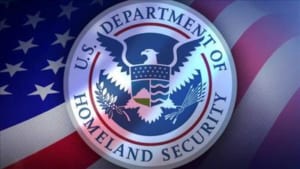For most people who are immigrating to the United States there two main categories of immigrant visas: family immigration visas and employment and investment immigration visas. These are the Immediate Relative (“IR”) category, the Family-Based Preference (“FB”) category and Employment-Based Preference (“EB”) category. For the FB and EB categories, there many subcategories for qualification based on family relationships (FB-1 to FB-4) or employment and investment opportunities (EB-1 to EB-5). Also, for these FB and EB categories, there is an annual quota of immigrant visas available which limits the number of people who can immigrant to the United States each year.
When there is a higher demand in any year for immigrant visas than the number of visas available in a category, these categories are referred to as “oversubscribed”. Visa applicants in oversubscribed categories must wait in line for a visa to become available in subsequent years. A visa applicant’s place in line for a visa is based on the date a petition is filed for their benefit with the United States Immigrant and Citizenships Services (“USCIS”), or in some EB-2 and EB-3 cases when a Labor Certification application is filed with the Department of Labor. This date is called the Priority Date.
A visa applicant’s place in line is kept by the U.S. Department of State (“DOS”) in its Visa Bulletin in which the DOS updates the Priority Dates every month. The USCIS also uses the Visa Bulletin to determine when visa applicants are eligible to adjust their status in the United States.
The Visa Bulletin has two tables listing the Priority Date for each visa category and country of chargeability: (1) A “Final Action Dates” table (Table A); and (2) a “Dates for Filing” table (Table B). Some countries with unusually high demand have their own listed Priority Dates (China, El Salvador, Guatemala, Honduras, India, Mexico, Philippines and sometimes Vietnam for the EB-5 immigrant investor category) so those countries are limited to only about 7% of the visas available in any category. Visa applicants from all other countries are listed together in “All Chargeability Areas Except Those Listed”. When a visa applicant’s Priority Date is before the date on the Visa Bulletin’s Final Action Date, the visa applicant has a visa available. For an explanation of the Final Action Date and the Dates for Filing, you can read here.
If you are in line waiting for a visa to become available, pay attention to the Table B, Dates for Filing to know when you can begin the visa application process, but understand you might still need to wait many more months before your visa number becomes available.
For more information, please contact us at info@enterlinepartners.com and speak with a U.S. immigration attorney in Ho Chi Minh City, Manila and Taipei.
ENTERLINE & PARTNERS CONSULTING
Ho Chi Minh City, Vietnam Office
Suite 601, 6th Floor, Saigon Tower
29 Le Duan Street
Ben Nghe Ward, District 1
Ho Chi Minh City, Vietnam
Tel: +84 933 301 488
Email: info@enterlinepartners.com
Facebook: Enterline & Partners – Dịch vụ Thị thực và Định cư Hoa Kỳ
Website: http://enterlinepartners.com
Manila, Philippines Office
Tel: +632 5310 1491
Email: info@enterlinepartners.com
Facebook: Enterline and Partners Philippines
Website: https://enterlinepartners.com/language/en/welcome/
Copyright 2022. This article is for information purposes only and does not constitute legal advice. This article may be changed with or without notice. The opinions expressed in this article are those of Enterline and Partners only.








